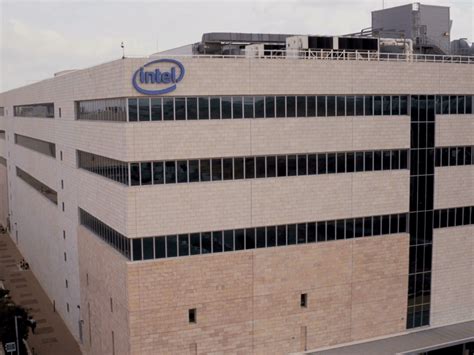In a stark illustration of how geopolitics can intersect with high-tech investment, Intel has decided to pause work on its $25 billion semiconductor fabrication plant in Israel. The announcement not only sends ripples through the tech industry but also forces a deeper contemplation about the viability of making massive technological investments in regions marked by instability. This development is an occasion to scrutinize whether the risk associated with such ventures outweighs the potential benefits and returns.
A key observation from the discourse surrounding this decision relates to Intel’s historical involvement in Israel. The company has a long-standing presence in the country, dating back to the establishment of its first R&D center outside the United States in 1974. Israel has since been a cradle of innovation for Intel, contributing significantly to the development of key technologies like the Pentium M, which was instrumental in steering the company away from the limitations of the Pentium 4 architecture. This rich history underscores why Intel would consider a significant infrastructure investment in Israel. However, the recent change of plans signals a need for a more cautious approach in response to shifting geopolitical realities.
> Intel Israel has never missed a wafer, despite all of the above. This comment highlights the industrial resilience that Intel’s facilities in Israel have historically demonstrated, even amidst regional conflicts. Nonetheless, the concerns are multifaceted. Commenters point out that while Israel’s capabilities and technological prowess are exceptional, the region’s political instability adds layers of risk not easily mitigated by resilience alone. The current strife and potential for exacerbated conflict cast a long shadow over future projects, regardless of past successes.
Economic prudence is a recurring theme in this debate. As one user succinctly put it, “…redirected to fueling Intel’s foundry push. Good to see practical thinking overruling ‘designers’ and their wankery.” This sentiment encapsulates the pragmatic shift in Intel’s strategy, focusing on core business imperatives rather than peripheral luxuries. The earlier grand plans for a facility incorporating creature comforts have been trimmed to prioritize capital efficiency and core technological advancement—demonstrating a pivot towards more conservative fiscal management in uncertain times.
Geopolitical stability is another critical factor influencing such monumental investment decisions. With the geopolitical landscape in constant flux, the strategic calculus of placing a high-value fab in a potential conflict zone becomes increasingly complex. Comments reflecting on the historical and current geopolitical scenarios, like “Taiwan is too unstable – let’s build in Israel,” and the counter-response, “Wouldn’t the US government step in if Intel was bombed in Israel?” underscore the intricate balance companies must strike between leveraging local talent and safeguarding their assets from geopolitical threats.
The environmental and long-term sustainability of such projects also earn attention. One user astutely commented on the desert climate reclaiming previously habitable areas, questioning the long-term viability of placing high-tech infrastructure in harsh environments increasingly affected by climate change. The entire fertile crescent, including Israel, is witnessing desertification, which poses another set of challenges for sustaining high-tech operations dependent on consistent and reliable resources.
Moreover, the debate around Intel’s decision intersects with broader questions about corporate governance and strategic foresight. Comments reflecting annoyance over the frequency of such canceled projects, like “Intel is king of starting projects then killing them,” suggest a critical view of how large corporations manage and occasionally mismanage their commitments. This narrative is important as it relates to trust and reliability—not just within investor communities but also among local populations and governments offering incentives to attract such ventures.
Ultimately, Intel’s pause on its Israeli fab is more than a corporate maneuver; it acts as a case study into the broader, more intricate balance of technology investment strategies against dynamic geopolitical and environmental landscapes. While Israel’s tech ecosystem is robust and has historically been a fertile ground for innovation, the pause reaffirms the necessity of integrating geopolitical risk assessments into long-term strategic planning for high-tech manufacturing. These are lessons not just for Intel but for an entire industry navigating an increasingly complex global stage.


Leave a Reply